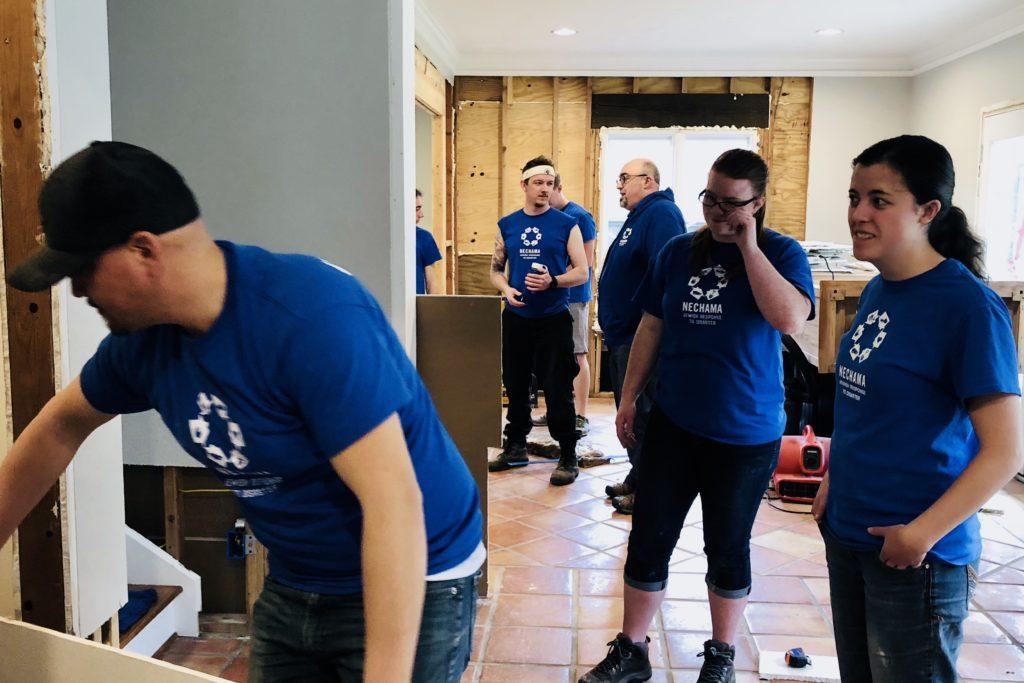It’s been six months since Hurricane Harvey made landfall in Texas, devastating communities, and altering lives. After helping more than 150 families during our Houston Response Project, NECHAMA teams began the hard work of helping storm-affected families with the next phase of rebuilding homes.
While on the ground earlier this month I spent some time with our staff, volunteers, partners, and the families we are assisting in Houston – seeing the progress they have made, hearing their stories, and watching their commitment to living in the spirit of Tikkun Olam.
I met a homeowner whose first floor flooded. He and his family have been “camping” on their second floor while waiting for help. Without NECHAMA, he wasn’t sure if he would have ever been able to rebuild.
Another homeowner I met was busy working hand in hand with our volunteers, determined to participate in the work needed to put her home back together. A teacher, unable to work due to PTSD, she and her husband have been renting a home miles away unable to be in their one story home. She told me NECHAMA was her saving grace, helping her get to a point where she could begin to see the end of the long road ahead. Thanks to our help, she thinks they can come home by June.
In another home, NECHAMA teams were finishing up the last of the drywall when the family stopped by to see the work. Their daughter looked around and excitedly told her parents that her room had walls again. That’s all she wanted. Something so simple, so basic, and for 6 months has been missing in her room – taken by the water and the damage the storm caused.
The work we are doing is personal- to us, to our volunteers, to the families we assist. It’s the heart of what we do, Tikkun Olam, repairing the world.
Thank you to the hundreds of volunteers who have worked with us in Texas since last September and to those who will join us in 2018. Thank you to our funders who made this work possible. NECHAMA remains committed to Texas in 2018, and we look forward to continuing to rebuild communities.
David Kaplan
